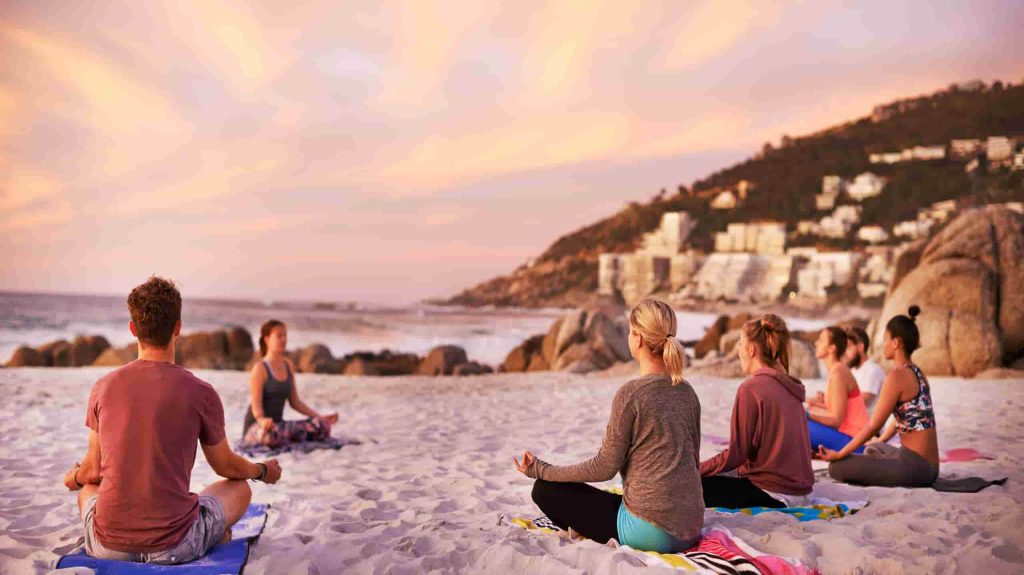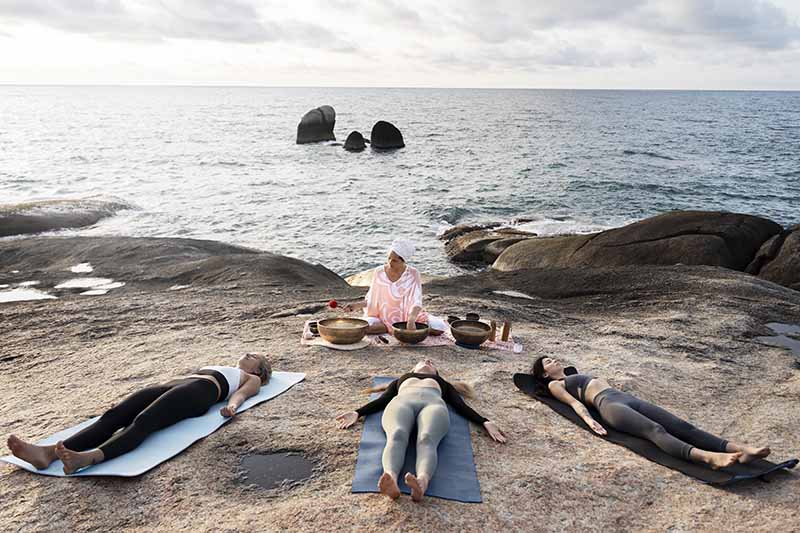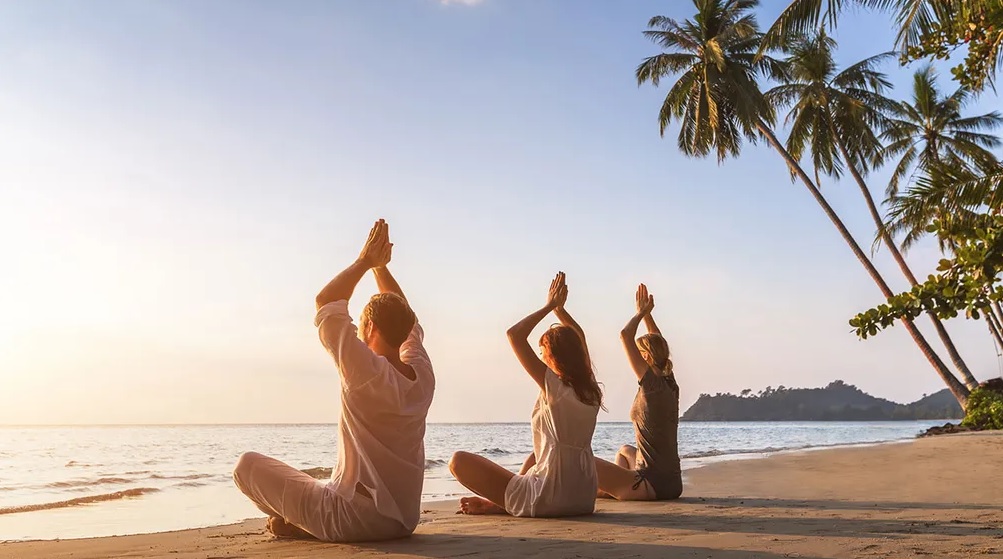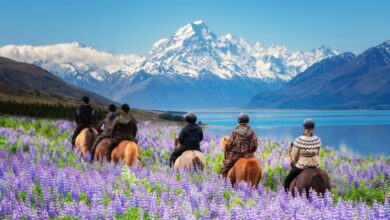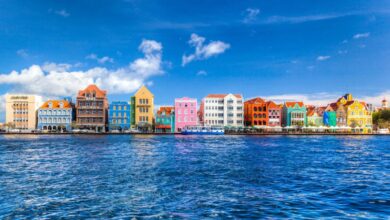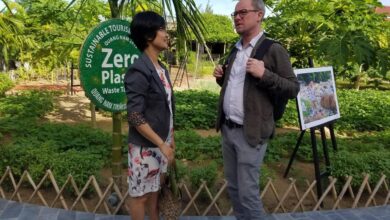Wellness Travel Revolutionizes Modern Vacation Culture
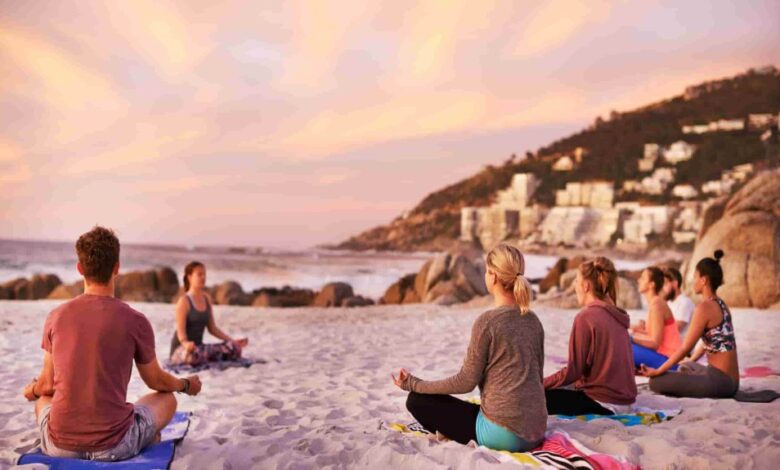
The Transformation of Travel Purpose
The global travel industry is experiencing a profound paradigm shift as wellness tourism evolves from a niche market into a dominant force redefining vacation culture. No longer confined to occasional spa visits or yoga retreats, wellness travel has emerged as a comprehensive philosophy that integrates physical, mental, and spiritual well-being into every aspect of the journey. This transformation represents a fundamental rejection of traditional tourism models that often left travelers more exhausted than rejuvenated. Instead, modern wellness travel offers intentional, transformative experiences designed to produce measurable improvements in health and happiness. From digital detox retreats and mindfulness pilgrimages to medically-supervised wellness programs and nature-immersion therapies, this expanding sector caters to travelers seeking not just escape from daily life, but meaningful personal transformation. This comprehensive analysis explores the cultural drivers, diverse modalities, economic impact, and future directions of wellness travel as it reshapes how we conceptualize the very purpose of taking a vacation.
A. The Cultural Catalysts Behind Wellness Travel’s Ascendancy
Multiple societal trends have converged to propel wellness travel from peripheral offering to mainstream vacation choice.
A.1. The Burnout Economy and Stress Pandemic
Modern life has created unprecedented demand for genuine restoration through travel.
-
Workplace Exhaustion Manifestation: With professional burnout recognized by the World Health Organization as an occupational phenomenon, travelers increasingly seek vacations specifically designed to counter chronic stress, with programs addressing cortisol reduction, sleep quality improvement, and digital addiction recovery.
-
Urban Lifestyle Disconnection: City dwellers experiencing what psychologists term “nature deficit disorder” actively seek travel experiences that restore connection to natural rhythms, with forest bathing, stargazing retreats, and wilderness immersion gaining popularity.
-
Preventive Health Consciousness: The shift from reactive healthcare to proactive wellness has travelers investing in vacations that offer tangible health benefits, from immunity-boosting programs to cardiovascular health retreats and nutritional reset experiences.
A.2. The Evolution of Consciousness and Meaning Seeking
Travelers are increasingly motivated by personal growth rather than mere leisure.
-
Transformational Travel Movement: This philosophy positions travel as a catalyst for personal development, with intentionally designed experiences targeting specific growth areas like mindfulness cultivation, creativity unlocking, or purpose clarification.
-
Spiritual Tourism Expansion: Beyond traditional religious pilgrimages, modern spiritual travel includes secular meditation retreats, philosophical walking tours, and experiences designed around existential exploration and values clarification.
-
Longevity and Biohacking Integration: The growing longevity movement has spawned travel experiences focused on extending healthspan through advanced diagnostics, epigenetic testing, and personalized regeneration protocols unavailable in travelers’ home environments.
A.3. The Digital Saturation Backlash
Technology overload has created counter-movements that directly influence travel choices.
-
Digital Detoxification Vacations: Properties worldwide now offer structured programs where guests voluntarily surrender devices, with environments specifically designed to reduce digital stimulation while promoting interpersonal connection and environmental engagement.
-
Attention Restoration Theory Applications: Retreats based on psychological research demonstrating that exposure to certain environments (particularly natural ones) can restore depleted cognitive resources are gaining scientific credibility and popularity.
-
Mindful Technology Integration: Rather than complete rejection, some wellness travel experiences teach conscious technology usage, helping travelers establish healthier digital boundaries that extend beyond their vacation.
B. The Expanding Spectrum of Wellness Travel Modalities
Wellness travel has diversified far beyond traditional spa vacations to encompass numerous specialized approaches.
B.1. Preventative and Medical Wellness Tourism
The most rapidly growing segment combines vacation with legitimate healthcare interventions.
-
Diagnostic-Driven Retreats: Facilities like Switzerland’s Chenot Palace and Germany’s Lanserhof offer comprehensive medical diagnostics upon arrival, with personalized programs addressing specific biomarkers through integrated approaches combining conventional and complementary medicine.
-
Longevity Institutes: Destination clinics like Spain’s Sha Wellness Clinic and Thailand’s Chiva-Som provide advanced longevity programs featuring epigenetic testing, stem cell therapies, and sophisticated regeneration protocols within resort-style environments.
-
Specialized Medical Tourism: Beyond cosmetic procedures, this category includes dedicated programs for specific health concerns like autoimmune conditions, digestive health, metabolic syndrome, and stress-related disorders under medical supervision.
B.2. Nature Immersion and Ecotherapy Experiences
Reconnection with natural environments forms the foundation of many wellness travel experiences.
-
Forest Bathing (Shinrin-yoku) Retreats: Originally developed in Japan, these structured experiences guided by certified therapists teach therapeutic immersion in forest environments, with documented benefits for immune function, stress reduction, and cognitive performance.
-
Blue Space Therapeutics: Coastal and aquatic environments are increasingly recognized for their psychological benefits, with programs incorporating thalassotherapy, guided breathing alongside wave rhythms, and mindfulness practices in marine environments.
-
Wilderness Solitude Programs: For those seeking deeper transformation, extended solo experiences in wilderness settings with minimal guidance provide powerful opportunities for self-reflection and perspective shift unavailable in conventional travel.
B.3. Cultural and Traditional Wisdom Immersions
Ancient wellness traditions form the basis for culturally grounded travel experiences.
-
Ayurvedic Rejuvenation Programs: Beyond superficial spa treatments, authentic Ayurvedic retreats in India and Sri Lanka offer comprehensive Panchakarma cleanses and personalized wellness protocols under the guidance of trained practitioners.
-
Indigenous Wisdom Retreats: Experiences developed in partnership with indigenous communities allow travelers to learn traditional healing practices, from Amazonian plant medicine ceremonies to Native American sweat lodge rituals, with appropriate cultural context and respect.
-
Traditional Medicine Systems: Growing interest in Traditional Chinese Medicine, Tibetan healing, and other complete medical systems has spawned travel experiences that combine cultural immersion with authentic therapeutic applications.
C. Destination Evolution and Industry Response
The wellness travel boom has prompted significant innovation in destinations and industry offerings worldwide.
C.1. Dedicated Wellness Destinations and Ecosystems
Certain locations have developed comprehensive wellness infrastructures that transcend individual properties.
-
Wellness Clusters Development: Places like Costa Rica’s Nicoya Peninsula (a Blue Zone), California’s Ojai Valley, and Thailand’s Koh Samui have evolved integrated wellness ecosystems with multiple complementary providers, creating destination-wide healing environments.
-
Traditional Wellness Heritage Revival: Regions with historic wellness traditions, including Hungary’s thermal bath culture, Jordan’s Dead Sea therapies, and Japan’s onsen tradition, have revitalized and modernized their offerings for contemporary wellness travelers.
-
Urban Wellness Infrastructure: Cities are developing sophisticated wellness districts with meditation centers, healthy dining clusters, wellness-focused accommodations, and day facilities catering to time-pressed urbanites seeking accessible transformation.
C.2. Hospitality Industry Transformation
Traditional hotels and resorts are fundamentally adapting to wellness travel expectations.
-
Wellness Architecture Integration: New properties incorporate biophilic design principles, circadian lighting systems, advanced air and water filtration, and materials selection based on health impacts rather than merely aesthetic considerations.
-
Sleep Optimization Focus: Recognizing sleep as foundational to wellness, properties are investing in sleep technology, from advanced temperature regulation and blackout systems to smart mattresses and digital sleep tracking.
-
Culinary Medicine Programs: Resort kitchens are evolving from mere food service to therapeutic nutrition centers, with personalized meal plans, cooking classes focused on health conditions, and integration with broader wellness programming.
C.3. Economic Impact and Market Development
Wellness travel represents a significant economic opportunity with distinctive characteristics.
-
Premium Pricing Tolerance: Wellness travelers demonstrate willingness to pay substantial premiums for authentic, results-oriented experiences, with some medical wellness programs commanding five-figure prices for multi-week stays.
-
Extended Stay Patterns: The transformative nature of many wellness experiences encourages longer average stays than conventional tourism, with correspondingly higher total expenditure and economic impact on host communities.
-
Employment Quality Improvements: Wellness tourism typically creates higher-skilled employment opportunities than mass tourism, from wellness guides and therapists to nutritionists and medical professionals.
D. The Wellness Traveler Profile and Experience Expectations
Understanding the modern wellness traveler is essential for industry stakeholders and fellow travelers alike.
D.1. Demographic and Psychographic Characteristics
Wellness travelers defy simple demographic categorization but share important psychological characteristics.
-
Outcome-Oriented Mindset: Unlike traditional tourists focused on relaxation or sightseeing, wellness travelers typically seek specific, measurable outcomes ranging from stress reduction and fitness improvement to deeper spiritual connection or creative breakthrough.
-
Sophisticated Wellness Literacy: Today’s wellness travelers are often highly knowledgeable about various modalities, expecting evidence-based approaches and qualified practitioners rather than generic spa services.
-
Holistic Health Perspective: They typically understand wellness as encompassing multiple dimensions—physical, mental, emotional, social, and spiritual—and seek travel experiences that address this complexity.
D.2. Experience Design Expectations
Wellness travelers have distinct expectations regarding program structure and environmental factors.
-
Personalization Demand: The one-size-fits-all approach is increasingly unacceptable, with travelers expecting programs tailored to their specific health status, goals, preferences, and even genetic predispositions.
-
Scientific Integration: While open to traditional and complementary approaches, modern wellness travelers increasingly expect scientific validation, qualified staff, and outcome measurement.
-
Seamless Experience Integration: They expect wellness principles to inform every aspect of their travel experience, from transportation and accommodation to dining and activities, rather than being confined to specific scheduled sessions.
E. Future Directions and Evolution Trajectory
Wellness travel continues to evolve, with several emerging trends shaping its future development.
E.1. Technological Integration Paradox
Wellness travel navigates a complex relationship with technology.
-
Quantified Self Movement: Advanced biometric monitoring, from sleep tracking to heart rate variability measurement, is increasingly integrated into wellness travel experiences to provide objective outcome data.
-
Virtual Reality Therapeutics: VR applications for phobia treatment, meditation enhancement, and pain management are beginning to appear in wellness travel contexts, complementing traditional approaches.
-
Digital Minimalism Design: Despite technological integration, the fundamental appeal of disconnection ensures continued demand for experiences specifically designed to minimize digital intrusion.
E.2. Sustainability and Regenerative Integration
The connection between personal and planetary wellness is strengthening.
-
Regenerative Travel Model: Beyond sustainability, regenerative wellness travel aims to leave destinations better than found, with programs incorporating environmental service, community support, and ecosystem restoration.
-
Climate Wellness Connection: Understanding of climate change’s psychological impacts is spawning “climate wellness” experiences that address eco-anxiety while facilitating constructive engagement with environmental challenges.
-
Social Wellness Dimension: Increasing recognition of social connection as a fundamental human need is driving experiences focused on community building, communication skills, and relationship enhancement.
E.3. Accessibility and Demographic Expansion
Wellness travel is expanding beyond its traditional affluent, adult demographic.
-
Family Wellness Travel: Programs addressing multigenerational wellness needs, from parent-child bonding to age-appropriate mindfulness practices, represent a growing market segment.
-
Corporate Wellness Integration: Companies increasingly incorporate wellness travel into executive development and high-performance team building, recognizing the transformative potential of removed, immersive experiences.
-
Economic Accessibility Innovations: While premium options abound, new models are emerging to make wellness travel accessible to broader demographics, from urban wellness hostels to scaled-down versions of premium programs.
Conclusion: The Permanent Integration of Wellness and Travel
The wellness travel movement represents far more than a temporary market trend—it signals a fundamental redefinition of vacation purpose in response to contemporary challenges. As modern life grows increasingly demanding, complex, and digitally saturated, travelers are rejecting vacations that merely provide temporary distraction in favor of experiences that offer genuine restoration, meaningful personal growth, and sustainable well-being improvements. The convergence of ancient healing traditions with modern scientific understanding creates unprecedented opportunities for transformative travel experiences that address the whole person across multiple dimensions of wellness. The future of travel lies not in more luxurious accommodations or exotic destinations, but in deeper, more intentional experiences that leave travelers genuinely healthier, happier, and more connected to themselves, their communities, and the natural world. In this context, wellness travel is not merely a sector within the tourism industry—it is the evolving frontier of travel’s highest potential to enhance human well-being.
Tags: wellness travel, health tourism, wellness retreat, medical tourism, spiritual travel, transformative travel, digital detox, wellness vacation, holistic travel, mindfulness retreat, wellness industry, sustainable wellness

